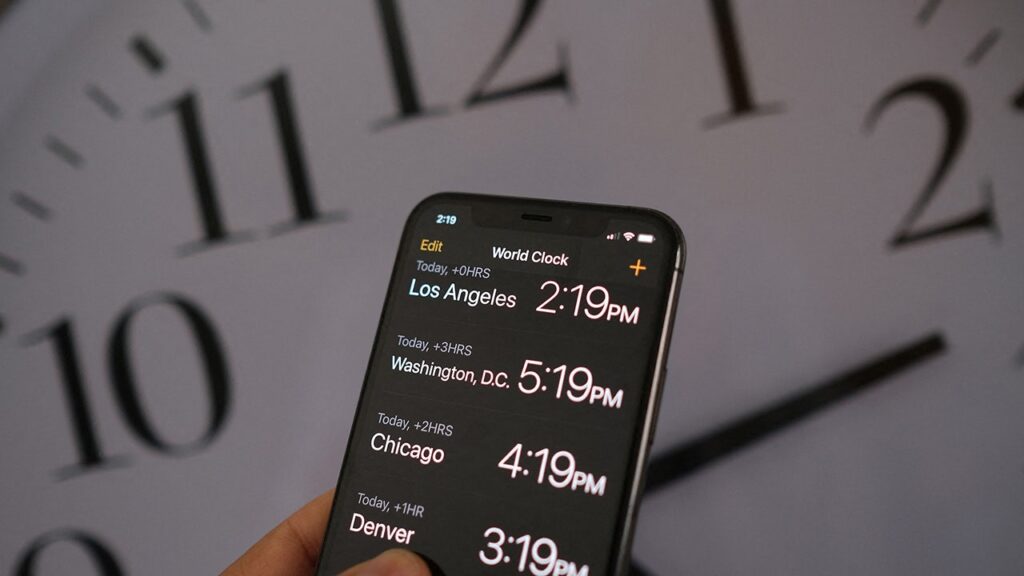NEWYou can now listen to Fox News articles!
Americans just turned their clocks back again for Daylight Saving — and Rep. Vern Buchanan, R-Fla., says it’s time to make it the last time.
“It’s clear that Americans want to do away with changing their clocks twice a year, and my bill will end this outdated practice,” Buchanan said.
Buchanan and Sen. Rick Scott, R-Fla., have reintroduced legislation that would stop the clock-setting once and for all.
“Just recently, I’ve had very promising conversations with House leadership, Energy and Commerce committee members and administration officials about holding hearings and acting on my bill this Congress,” Buchanan said.

Rep. Vern Buchanan, R-Fla., attends the House Ways and Means Committee markup of the reconciliation directive of the Concurrent Resolution on the Budget for Fiscal Year 2025 in the Longworth House Office Building in Washington, May 13, 2025. (Bill Clark/Getty Images)
This year, as voters across the country adjusted their clocks on Sunday, Congress remains deadlocked over a 35-day shutdown that has absorbed focus on Capitol Hill. That hasn’t stopped several lawmakers from calling the change a no-brainer.
The 2025 Sunshine Protection Act would make Daylight Saving the new standard time for the country. The bill has 18 bipartisan cosponsors in the Senate and carries 29 cosponsors in the House of Representatives.
The country first adopted Daylight Saving back in 1918 during World War I in order to extend the workday, allowing workers to make more use of the sun instead of burning through fuel to light their progress at night. At the time, the idea carried a sense of patriotism — a small way Americans could shore up resources and contribute to the war effort.
FISCAL DISASTER SCENARIO DURING SHUTDOWN SENDS GOP SCRAMBLING FOR NEW SPENDING PLAN
Rep. Jay Obernolte, R-Calif., believes the time shift today causes more headaches than it’s worth.
“Extensive research has shown that the biannual clock change increases traffic accidents, disrupts student performance, and negatively impacts our health. But beyond mending broken sleep cycles, ending these clock changes would address real-world problems that families experience twice a year from lost productivity and disrupted routines,” Obernolte said.

A farmer and a soldier enjoy the benefits of “a longer day” provided by Daylight Saving, circa 1917, produced by the United Cigar Stores Company. (David Pollack/Getty Images)
It’s not the first time Congress has considered such a bill.
Congress last looked poised to change the rules on Daylight Saving in 2017 when, led by then-Sen. Marco Rubio, R-Fla., the chamber used unanimous consent to advance the Sunshine Protection Act. The House, under the leadership of then-House Speaker Nancy Pelosi, D-Calif., never took up the bill.
Asked why past efforts have failed, Rep. Buddy Carter, R-Ga., said it took a backseat to other focuses.
“Congress has a lot of critical work to do with limited time on the floor to get it all done,” Carter said. “This is a priority for many members of Congress and, more importantly, the American people. It’s past time we get this across the finish line.”
Scott attempted to use that same unanimous consent approach last week to speed the bill through the Senate — even in the middle of the government shutdown. The effort failed when Sen. Tom Cotton, R-Ark., objected.
“With permanent Daylight Saving Time, for three months out of the year, kids in West Arkansas towns like Bentonville, Fayetteville and Fort Smith would start school in the dark. I will always oppose any effort to adopt Daylight Savings Time year-round,” Cotton said in a post to X.
WHAT YOU EAT THIS WEEKEND COULD MAKE OR BREAK YOUR DAYLIGHT SAVING RECOVERY
Findings by Gallup published earlier this year show that a majority of Americans, 54%, support doing away with the time-switching. Forty percent said they supported its continuation and 6% said they were uncertain.
Rep. Barry Moore, R-Ala., another supporter of the Sunshine Protection Act, believes that most Americans agree with the idea in principle but find themselves confused about whether they would prefer keeping the standard time or moving the day up by one hour permanently.
“The challenge hasn’t been whether we should stop changing the clocks. Most people agree we should. It’s been about which time we should make permanent. Some prefer Daylight Saving time, others want standard time. That back-and-forth has slowed progress in Congress. But I think we’re at a point now where everyone is ready for less bureaucracy and more common sense on this issue,” Moore said.

Buchanan and Sen. Rick Scott, R-Fla., have reintroduced legislation that would stop the clock-setting ritual once and for all. (Chris Delmas/Getty Images)
That support may also change depending on the region.
Rep. Erin Houchin, R-Ind., said her district, a rural area with a heavily agricultural makeup, overwhelmingly supports the idea.
“In a recent survey of Ninth District constituents, more than 90% said they’d like to end the twice-a-year clock changes. Keeping one consistent schedule would improve public safety, strengthen economic stability, and give farmers more daylight to finish their work,” Houchin said.
DAYLIGHTS SAVING: IT’S ABOUT THE SUNLIGHT
Other Republicans say that while they would support the idea, it isn’t one of their top priorities. That’s the view of Rep. Eric Burlison, R-Mo.
“It’s an issue that I have a position on, I know how I would vote. But I’m really focused on insurance policy, healthcare reform, anything related to deregulation — those kinds of things,” Burlison said to constituents in comments made to a local radio outlet.
The consideration of a Daylight Saving bill, like all other priorities on Congress’ plate, is held up by an ongoing government shutdown that has stalled legislative considerations for over a month.
CLICK HERE TO GET THE FOX NEWS APP
The Senate rejected the GOP’s spending legislation for the 14th time on Tuesday.


